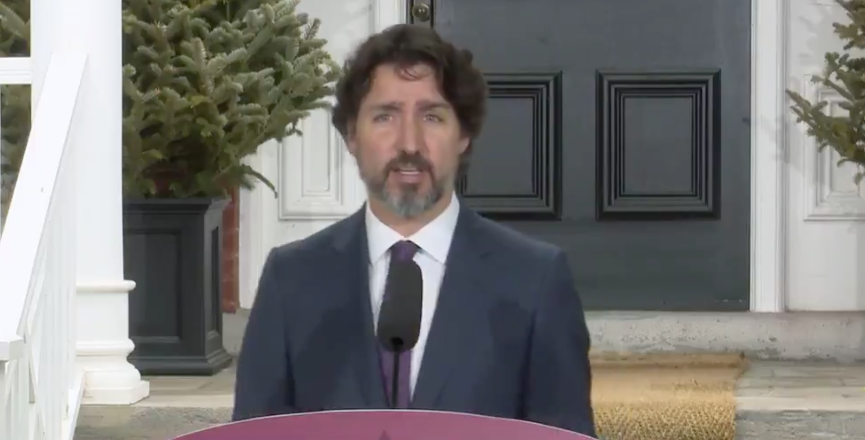The New Democrats have used their leverage in a time of minority government to wring yet another concession from the Liberal government, which will be of great benefit to many working Canadians — or so it seems.
On Monday, May 25, NDP Leader Jagmeet Singh proudly announced that, with businesses opening across the country — while, in many places, the coronavirus is nowhere near under control — the NDP has “secured two weeks of paid sick leave for every worker in Canada.”
Seems like a great victory, until you remember that Canada is a federal country, and, except for a few sectors, such as transport and communication, which are federally regulated, most Canadian workers are governed by provincial labour laws.
Prime Minister Justin Trudeau recognized that fact when he announced his party’s understanding with the NDP on Monday.
Echoing Singh’s rhetoric almost word-for-word, the PM said: “Nobody should have to choose between taking a day off work due to illness or being able to pay their bills just like nobody should have to choose between staying home with COVID-19 symptoms or being able to afford rent or groceries.”
But when Trudeau spelled out how his government would spare workers that frightening choice, he carefully recognized he was dealing with an area of largely provincial jurisdiction.
“The government will continue discussions with the provinces without delay,” he said, “on ensuring that as we enter the recovery phase of the pandemic every worker in Canada who needs it has access to 10 days of paid sick leave a year.”
And what if the provinces, or, at least, some of them, don’t want to play ball? In that case, Trudeau announced, his government will “consider other mechanisms for the longer term to support workers with sick leave.”
Concession gets NDP support for hybrid House sittings
The federal government cannot, by fiat, guarantee anything to all Canadian workers, immediately. And so, what we have, as in so much that happens in federal Canada, is the beginning of a process.
But it is enough of a concession for the NDP to go along with the government’s proposal for a hybrid live-and-in-person and digital Parliament, for the foreseeable future.
The Conservatives have been pushing for a return to full, regular, in-person sittings of the entire House, while the Bloc has been sitting on the fence. The Trudeau government absolutely needed NDP support for its mixed-media approach, and, by launching the sick leave process, they succeeded in getting it.
It is passing strange that the Liberals, who quite often like to portray themselves as the true progressives, did not think of this idea on their own. They needed prodding from their left flank to take action — however inconclusive that action is, for the time being — just as they did on other matters such as a 75 per cent wage subsidy, modelled on what such countries as Denmark have done successfully.
On Monday, the Liberals announced another measure that the NDP has been encouraging them to take, a rent subsidy for small businesses. The Canada Emergency Commercial Rent Assistance (CECRA) program for small businesses is fully operational now, and the government is encouraging property owners to apply.
Here’s how it works.
If property owners will reduce rent for their small business tenants by at least 75 per cent, retroactively for the months of April and May, and for June, the newly created CECRA will cover half of the rent. The condition is that landlords will only require tenants to pay up to a quarter of the rent. The government expects property owners to forgive the other 25 per cent.
This program, unlike the sick leave pledge, now exists in detailed, granular form, with somewhat different criteria and dates for each province. The whole enterprise is managed by the federal Canada Mortgage and Housing Corporation (CMHC)
Cooperative government works
As with the wage subsidy, the idea of this program is to keep small businesses alive — or, at least, on life support — until after the pandemic.
The government argues that what it is offering is a sound business proposition for landlords. In a way, it is an offer they cannot afford to refuse. In the government’s words, “If a tenant declares bankruptcy and is evicted, the property owner receives zero rental income and faces additional costs while they search for new tenants.”
It is better for landlords if they get three-quarters of their rent for three months than nothing for perhaps a long time. It is also better for all of us if as many small businesses as possible remain viable and can reopen in due course.
Again, the big push for this new program came from the opposition benches, especially those occupied by the NDP and the three Green members.
It is another sign of a co-operative, results-focused approach to government working, here in Canada.
Karl Nerenberg has been a journalist and filmmaker for more than 25 years. He is rabble’s politics reporter.



